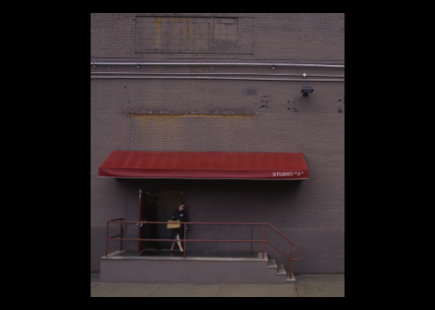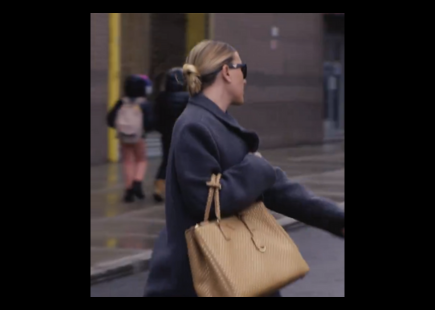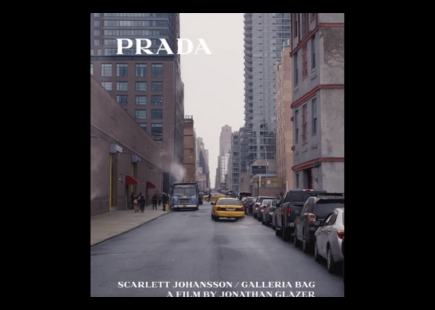Prada is the latest mega brand to get the Glazer treatment, but what does it all mean?

Jonathan Glazer, the Oscar-winning filmmaker behind "Under the Skin," has reunited with Scarlett Johansson for a new project that draws on Shakespearean verse and leads us to reflect on the deeper meaning.
Glazer’s first work since his controversial remarks at the Oscars is a typically ambiguous, tense, stylish and minimalist offering.
Despite only directing four films (Sexy Beast (2000), Birth (2004), Under the Skin (2013), The Fall (2014) and Zone of Interest (2023)), Glazer is something of a cult figure in creative circles, with classic music videos for bands including Radiohead, Blur, Massive Attack and Jamiroquai. He has also worked on adverts for companies including Apple, Guinness, and Sony.
His return sees him collaborate with Johansson on a short film promoting Prada's Galleria bag collection. The advert, shot in New York under the direction of Italian creative director Ferdinando Verderi, features Johansson, shot in sepia, grappling in front of a camera to deliver Shakespeare’s immortal lines from ‘Antony and Cleopatra’ and ‘Macbeth’.
Johansson is depicted in a vulnerable state, shifting through a range of emotions before taking time out for a makeup top-up. Following the shoot, the camera tint shifts to colour as she leaves the studio hurriedly, clutching the Prada Galleria bag while entering an iconic yellow New York taxi cab.
Scarlett Johansson stars in new Prada campaign directed by Jonathan Glazer.pic.twitter.com/zIFKh4zpjc
— Bulletin Film (@BulletinFilm) April 4, 2024
What does it all mean?
Glazer's films often delve into the darker aspects of human nature and society, challenging viewers to confront uncomfortable truths and existential questions. His work typically conveys an unsettling beauty, and blurs the lines between reality and fantasy, inviting interpretation and analysis from audiences long after the credits roll.
This is all to say that I might be way off with my hot take here, but it’s clear the line "his face was in the heavens and therein stuck" from ‘Antony and Cleopatra’ is central to the advert’s deeper message.
Cleopatra is describing the beauty of her lover, Mark Antony, who has died by suicide after being defeated by Octavius Caesar. The line suggests that Antony's face, in death, has ascended to the heavens and become fixed or stuck there, implying that his beauty and greatness have been immortalised in the celestial realm. It conveys the idea that even in death, Antony's legacy and memory endure as something divine and eternal.
Johansson, in Glazer’s ad, is trying to give Shakespeare’s line the gravitas it deserves, while struggling to enshrine her own legacy in an industry in which she wants to be remembered for more than just her face (which is symbolically being made up in the scene). As the ad shifts to colour, the tension remains in Johansson’s mannerisms, questioning the gap between her internal and external worlds.
Harder to define is what the advert means for Prada as a brand.
Perhaps there’s an uneasy acknowledgment that beauty and style are a defining part of our legacy whether we like it or not, so we’d all do well to put our best foot forward. Wearing Prada, ideally.
Now I wonder if the Galleria handbag’s colourway will match my eyes…



If you enjoyed this article, you can subscribe for free to our weekly email alert and receive a regular curation of the best creative campaigns by creatives themselves.
Published on:




